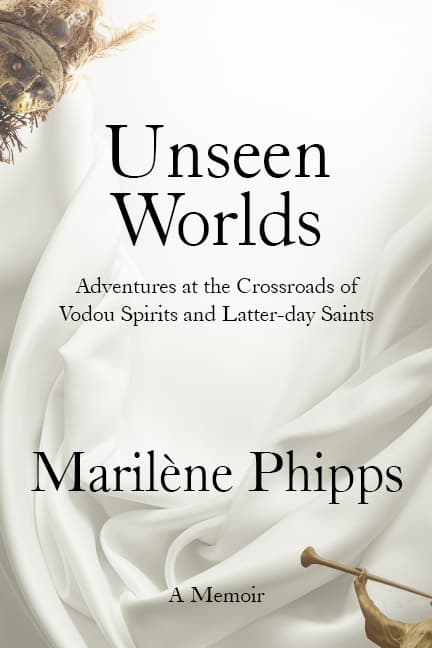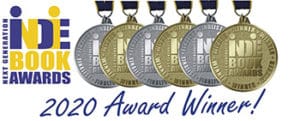
Unseen Worlds: Adventures at the Crossroads of Vodou Spirits and Latter-day Saints
The extraordinary life of Marilène Phipps began in Haiti — the magical island of African Vodou gods who followed their devotees on the slave ships, and the world’s first black republic — the singular cultural context and exotic milieu of the Caribbean, where hell and paradise can transfix us daily.

In this powerful memoir, we enter the lives of a family who are both descendants of European aristocrats and African slaves. We meet Phipps’s godfather, the rebel leader Guslé Villedrouin, and we relive her experiences with Vodou priests and spirits, a cold-eyed pope, a charismatic Muslim astrologer, Catholic monks and exorcists, American Mormon bishops, scholars and missionaries. Through it all, we are stirred by the antithetical feel of entitlement and destitution, barbarism and lyricism, infinity and insanity.
The 2010 earthquake in Haiti brings a collapse to Phipps’s world, but is also the start for her to find modern answers to the ancient questions, ”Who are we? Where do we come from? Where are we going?”
Book review. Sunday, July 22nd
The poetry of ‘Unseen Worlds’
“Lightning struck the tall tree sheltering my father’s tomb in the garden of my childhood,” opens Marilène Phipps arresting, bewitching new memoir “Unseen Worlds: Adventures at the Crossroads of Vodou Spirits and Latter-day Saints’’ (Calumet), and the sentence holds in it the mystery, power, and poetry that unfolds. Phipps, a poet, painter, and writer… writes of her life in Haiti, of the deaths of her father, her brother (“the first gentle moon I knew”), her husband, Ali (when he dies of lung cancer she “lit a candle and howled under the swimming pool”). She writes of Catholicism, Islam, Vodou, of a tarantula in her crib, of the way death, “the great scandal of our lives,” does and does not end us. We are given a history of Haiti as well as the crumple and collapse in the aftermath of the earthquake in 2010. Phipps’s language is lush, sinuous, each paragraph holds poetry, and her “Unseen Worlds’’ is undeniably a memorable memoir.
